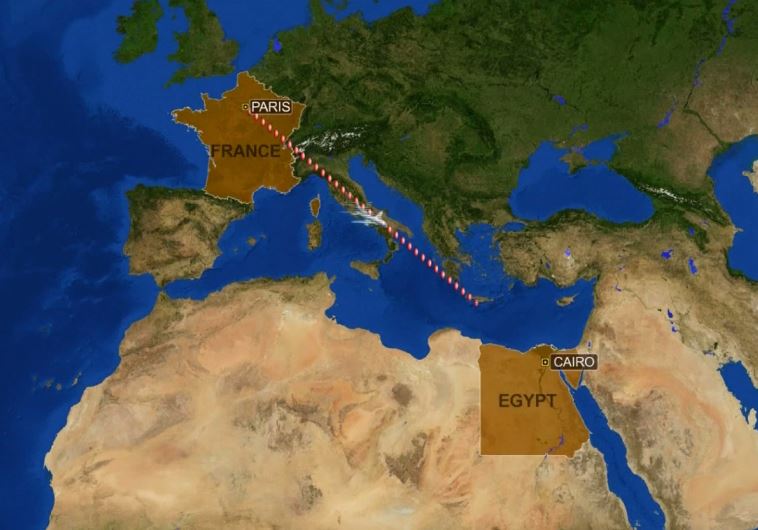Human remains from EgyptAir crash site said to indicate blast on board
No traces of explosives have been detected so far, an Egyptian forensics official and investigation sources said.
 EgyptAir passenger jet with 66 people disappears from radar(photo credit: screenshot)Updated:
EgyptAir passenger jet with 66 people disappears from radar(photo credit: screenshot)Updated: